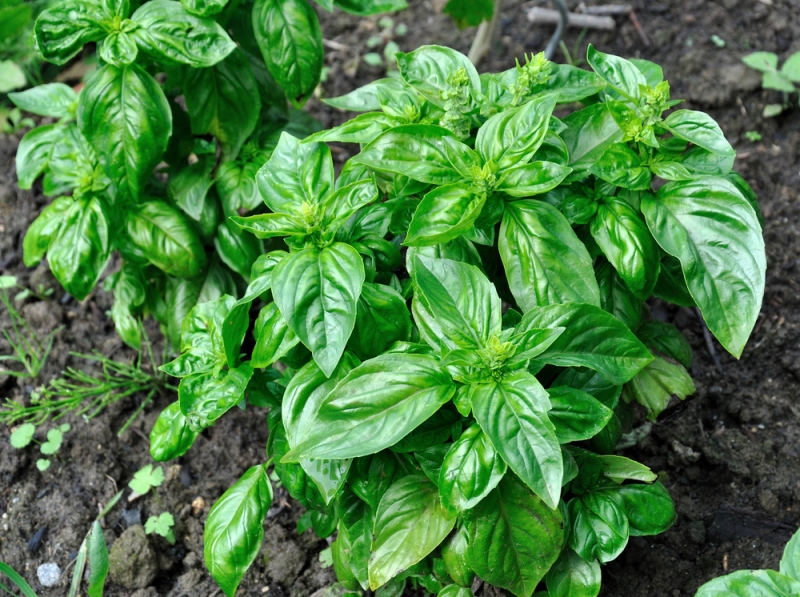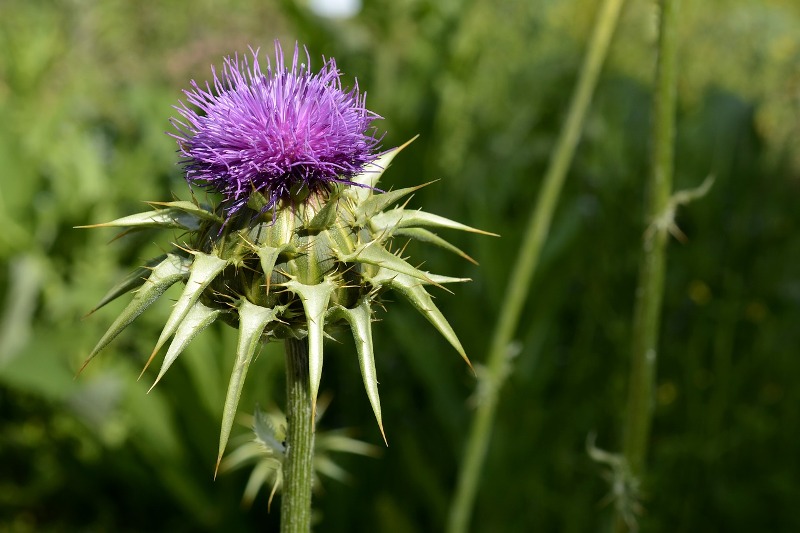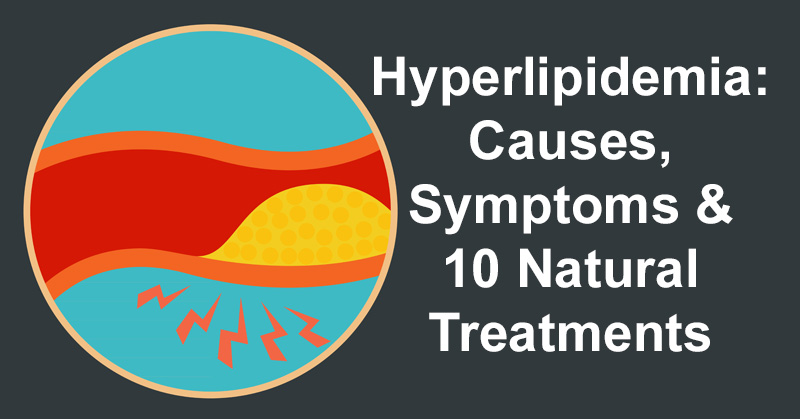Hyperlipidemia is the medical term for high cholesterol. Many factors lead to high cholesterol, including a sedentary lifestyle, a poor diet, and smoking. While most people don’t experience symptoms related to hyperlipidemia, some do, and some of those symptoms may be serious. Yes, most conventional treatments for hyperlipidemia involve medication to lower cholesterol levels, but natural treatment focuses on following a hyperlipidemia diet and maintaining a healthy lifestyle to do the same. (1)
Hyperlipidemia Causes
- Smoking
- Poor diet
- Physical inactivity
- Alcoholism
- Obesity
- Diabetes
- Hypothyroidism
- Kidney disease
Hyperlipidemia Symptoms
- Yellowish nodules of fat in the skin beneath the eyes, elbows and knees
- A large spleen
- A large liver
- Whitish rings around the eye’s iris
- Heart attack
- Stroke
- Peripheral vascular disease

Hyperlipidemia Treatment
1. Change Your Diet
Following a hyperlipidemia diet plays a key role in managing the condition naturally. A hyperlipidemia diet includes anti-inflammatory whole foods full of nutrients and antioxidants. (2) Inflammatory hyperlipidemia foods to avoid include:
- Sugar and refined grains: Both stimulate the liver to produce more cholesterol and increase inflammation
- Packaged and processed foods: These foods are typically high in salt, sugar and saturated fats
- Hydrogenated fats and trans fats: Both cause inflammation and increase cholesterol levels
- Conventional dairy products: Cause the formation of free radicals in the body that can cause damage
- Factory-farmed animal products: These foods are often full of hormones and toxic chemicals
- Too much caffeine: An excess of caffeine can increase cholesterol levels
- Too much alcohol: Alcohol stimulates the liver to produce more cholesterol and causes inflammation
Replace foods that cause high cholesterol with these healing foods:
- Omega-3 fats: Omega-3 foods are heart-healthy and help reduce the risk of cardiovascular disease
- Foods high in soluble fiber: Soluble fiber bind to cholesterol and causes it to be excreted by the body
- Olive oil: Olive oil is high in antioxidants and anti-inflammatory compounds that support heart health
- Garlic and onions: These foods help reduce LDL cholesterol levels thanks to their sulfer-containing compounds that help cleanse the arteries
- Apple cider vinegar: Consuming 1 tablespoon a day can help naturally lower cholesterol levels (3)
- Herbs: Basil, rosemary and turmeric are rich in antioxidants and can help lower cholesterol naturally

2. Try Red Yeast Rice
Red yeast rice is extracted from rice that’s been fermented. It’s been used as part of traditional medicine in Asian countries for centuries. Red yeast rice can help reduce cholesterol levels by up to 32%, making it a natural hyperlipidemia treatment. Take 1,200 milligrams twice per day. (4)
3. Supplement with Niacin
Niacin, or Vitamin B3, helps reduce LDL cholesterol while increasing HDL cholesterol. A study from Duke University found that niacin helped improve diabetic conditions in people with new-onset diabetes that resulted from hyperlipidemia. Take 1,500 milligrams per day.
4. Try Milk Thistle
Milk thistle has many health benefits. It has the ability to help lower cholesterol levels and inflammation while cleansing the blood and preventing oxidative stress damage within the arteries. Take 50-150 milligrams of milk thistle per day for hyperlipidemia.

5. Use Chromium
Higher chromium levels are linked to healthier arteries and healthier blood cholesterol levels. A study published in Human & Experimental Toxicology found that chromium combined with niacin improve the condition of hyperlipidemia in rats. Take 200-1,000 micrograms per day for hyperlipidemia treatment. (5)
6. Use Garlic
Garlic lowers LDL cholesterol levels while increasing HDL cholesterol levels. Studies suggest that garlic can be used in food or supplement form to help reduce high cholesterol symptoms and lower the risk of coronary heart disease.
7. Exercise
Exercising on a regular basis can help naturally lower cholesterol levels. Specifically, weight training and burst training have been shown to support a healthy blood lipid profile. Aim for 30-60 minutes per day of physical activity. (6)

8. Lose Weight
Obesity is a common cause of high cholesterol. If appropriate, losing weight can help put you on the right track to health. A weight loss of even 10% can help significantly lower your risk of hyperlipidemia and help you better manage symptoms.
9. Stop Smoking
Smoking cigarettes is directly linked to an increase in bad cholesterol and triglycerides in the body. To help prevent or manage hyperlipidemia, it’s imperative to stop smoking once and for all.
10. Use Essential Oils
Lemongrass essential oil and lavender essential oil can help lower cholesterol levels. Lemongrass oil can help the body sustain healthy levels of triglycerides and reduce LDL cholesterol in the body. Lavender oil can help decrease emotional stress, which can lead to lower cholesterol levels. You can also try cypress essential oil to improve circulation and rosemary oil to support cardiovascular health. (7)


